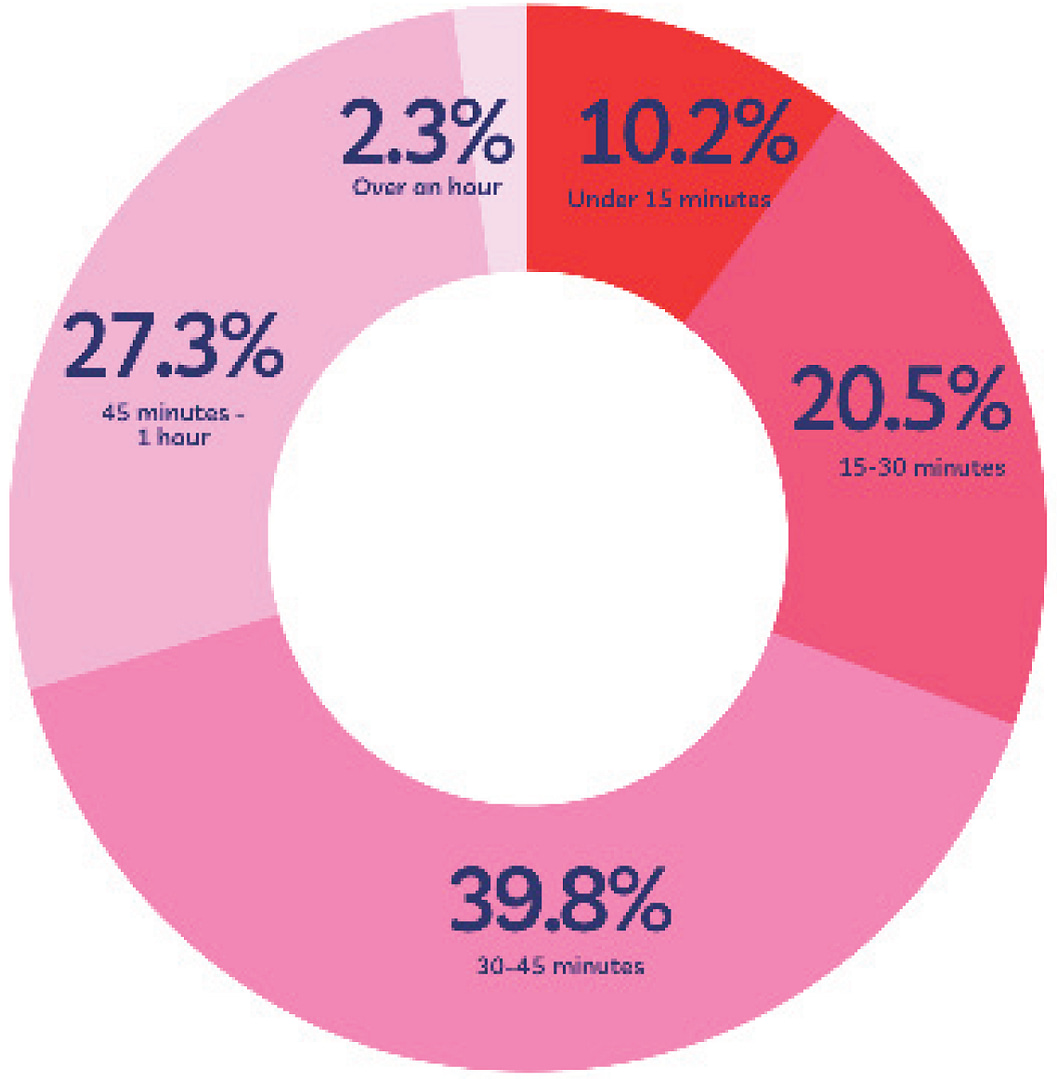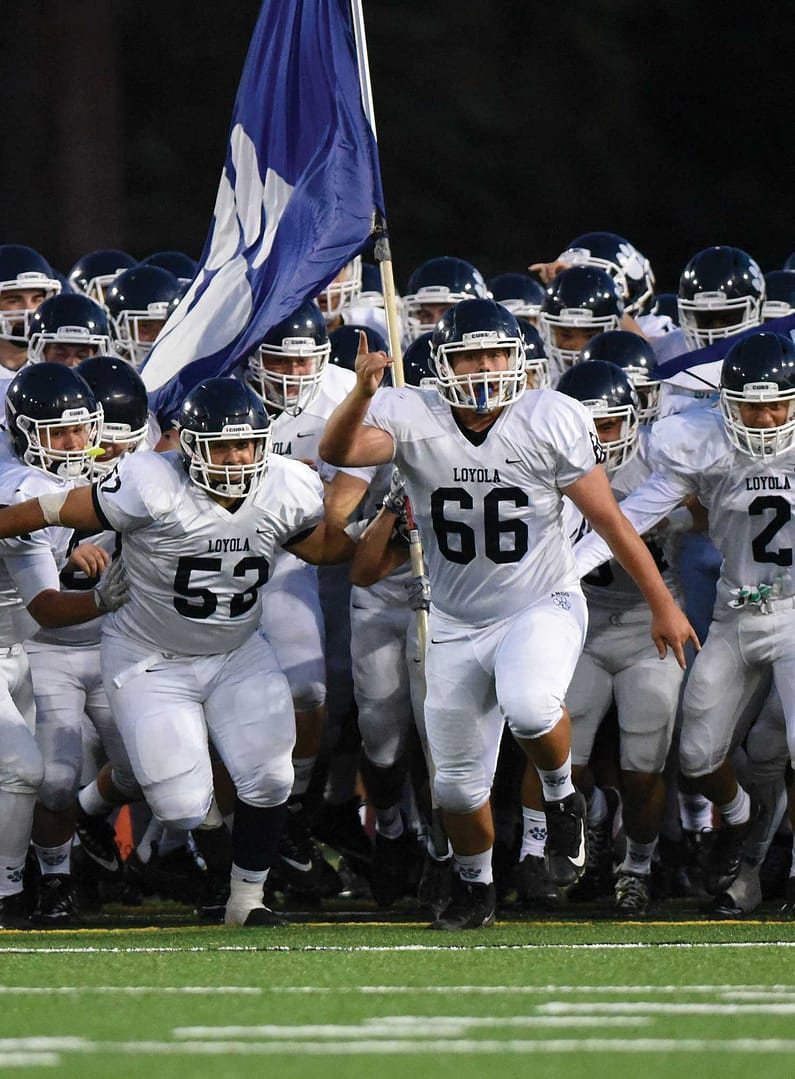Editorial
When the first European settlers arrived in the North American mainland in the early 17th century, they had endured months of hardship in the journey across the Atlantic and then faced a fight for survival in the first winter. After surviving these perils, the Puritans and Pilgrims gave thanks. This tradition continued for centuries, ultimately evolving into the popular Thanksgiving holiday. Officially christened by President Abraham Lincoln in 1863 as a national holiday, Thanksgiving has been an American tradition ever since. The true purpose of Thanksgiving is, as the holiday’s name explicitly indicates, to set aside a day to give thanks.
Yet, in contrast to tradition, the Thanksgiving holiday has strayed from its true purpose and has instead become a breeding ground for the consumer culture of America.
Theology teacher Jack Krouse S.J. explains the importance of Thanksgiving from a Catholic perspective. Krouse said, “In the Christian context, the notion of gratitude comes from God being the ultimate giver of the gifts we receive. For St. Ignatius, the greatest of sins would be ingratitude. To be ungrateful would somehow sever that relationship in which we stand with open hands to everything God has given.”
Consumerism has managed to monetize a holiday meant to give thanks for fortune. Many stores will remain open on Thanksgiving and even extend their hours to cash in on extra profit. Major retailers, including JC Penney, Toys R Us, Target, Walmart, and BestBuy will begin opening doors in the afternoon. Businesses operating on the once economically stagnant day harms both the employee and the customer. Compelling workers to labor on a day that should be set aside for thanks is inherently immoral. Considering that peak hours of shopping traffic for most stores are in the early evening, many employees are required to work during what would be time with family. Also, many customers go shopping instead of spending time with their families.
Americans should be sensible enough to boycott the avarice of corporate America. But, of course, the reason companies started Thanksgiving hours was to exploit the insatiable appetite Americans have for merchandise. The American consumer provides the fuel that keeps the money train of holiday economics speeding off the rails. In 2013, Walmart reported that an astronomical 22 million shoppers visited their stores on Thanksgiving day. Similarly, Macy’s received upwards of 15,000 customers at its superstore in New York over the course of the holiday. Greed in general opposes virtue, but greed on the day that is set aside to combat the vice is especially toxic.
Immediately succeeding “Thanksgiving” is the epitome of consumerism–the infamous Black Friday. In the course of 24 hours, Americans go from “giving thanks” to irresponsible consumption. Americans are so intent on their pursuits that they will kill each other to take advantage of the deals–literally. According to Independent, since 2006, 98 American shoppers have been injured on Black Friday while shopping. Shoppers have even used pepper spray to assert their right to merchandise. Sadly, in the past nine years, seven people have lost their lives in store stampedes on Black Friday.
According to CNN, in 2011, the total number of people that shopped at some point in the four day Thanksgiving holiday was 140 million. The aggregate of these shopper’s purchases yielded 59.1 billion dollars. These statistics fail to include the most recent manifestation of materialism–Cyber Monday, which occurs on November 30 this year.
Of course, the exorbitant acquisitiveness of Americans has not arisen spontaneously. Krouse noted that imbalanced desires for material things stem from a lack of gratitude. He said, “When we can recognize how we are being influenced subtly by a consumerist culture that would want us to acquire more and more in an elusive search of happiness, we can realize that often it is the simple pleasures of sharing meals or enjoying conversation that give us the most lasting memories.”
When President Lincoln officially sanctioned Thanksgiving as a national holiday, he acknowledged that the blessings granted to the United States are often forgotten. Lincoln described the fortunes of America as “so constantly enjoyed that we are prone to forget the source from which they come.” Perhaps then, Americans could use a reminder of some of the benefits they ought to be thankful for.
According to the United Nations, nearly one and a half billion people live on less than $1.25 per day. The UN ranks America as having the fifth highest standard of living in the world. The U.S Census Bureau notes that the average poor American has more living space than the middle class citizen of many European cities. The census also found that 80% of poor households have air conditioning and 75% own a car. These are only a few indicators of the prosperity America enjoys. Relative to the rest of the world, America is truly one of the most blessed nations.
Yet, this prosperity is worthless if it is not truly appreciated. Just as the pilgrims and Abraham Lincoln gave thanks for their blessings, so too should modern Americans give thanks for all God’s providence.







Comments are closed.